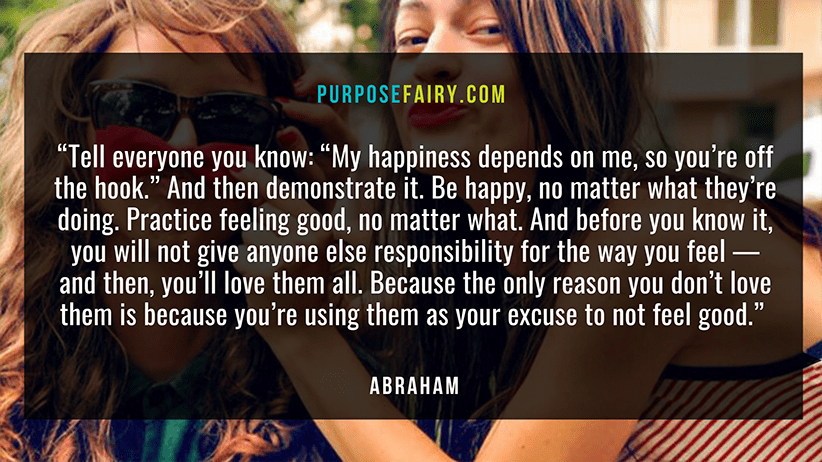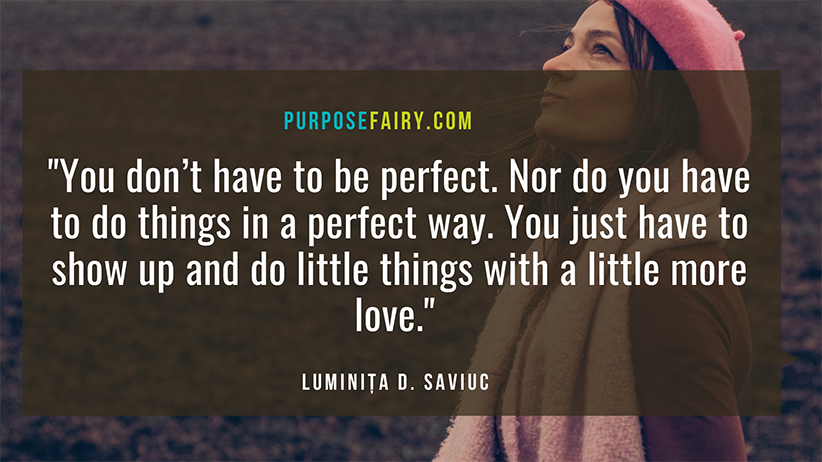
“…the purpose of relationship is not to have another who might complete you; but to have another with whom you might share your completeness”.~ Neale Walsch
Have you ever been in a relationship and felt like you had nothing more to give? The reason could be your relationship dynamic was co-dependent rather than one based on self-love.
A relationship is about presenting the best version of yourself to another person to better experience who you are, not to lose yourself. Co-dependency is a tool of manipulation for getting out of another person what you are lacking. The end result is disappointment because neither person is expressing the best version of themselves for the other to grow.
Relationship Authenticity
A healthy relationship is one based on transparency, honesty, and self-love. Everyone wants to be in a healthy relationship but not everyone knows how to achieve this. We may have a past that still haunts us. We are afraid of being true to who we are in the context of a relationship for fear the other person will not love us. We put on a mask to hide who we truly are, and the other person thinks that this form is our true identity. Do you wear a mask? What is it?
The spiritual journey I have been on the past four years has taught me that self-love is critical to being able to love others in the context of a healthy relationship. I didn’t know who I was when I entered marriage at age 22, right after graduating from college.
I brought a lot of emotional baggage into the marriage stemming from a history of anxiety/depression and not knowing what to do with my attraction to men despite loving my wife. I believed, and so did she, that our relationship was safe with God at the center.
The reason why the relationship failed is that I didn’t have a clear identity of who I was entering marriage. I was under the erroneous assumption that everything would work out fine because we were Christians.
How to Be Your Authentic Self in Your Relationship

Author Neale Walsch states in his book “Conversations with God” that “Relationships fail when you see them as life’s grandest opportunity to create and produce the experience of your highest conceptualization of another”.
My wife was head over heels about me when we were dating, something that happens to most couples falling in love. She was falling in love with her concept of who I was to her instead of loving herself in the context of our marriage and letting me be who I was. At the same time, I wasn’t stopping her because I didn’t know who I was either.
Consider your own marriage or intimate relationships. What induced you to enter them? Do they function out of your wholeness or your brokenness?
We were committed to making things work and put our trust in God. Trusting in God and loving others are great ideals, but this is not replacement for self-love. We were both emotional invalids searching for ourselves, but not in the right way.
Over the past few years, I have learned to love all parts of myself. I have read several books on self-help and spirituality that have helped me heal from past wounds. I also have an amazing friend who has gone through challenges similar to mine. God healed my mind and broke negative thought patterns that formed my mental narrative. Still, I harbored anger toward certain people and situations.
There are never any mistakes, only lessons to be learned in life. Recently, amid saying positive affirmations and reading “A Return to Love” by Marianne Williamson, I had a spiritual breakthrough in which I realized that love for others is an outflow of self-love.
Once I allowed my self-love to transform into a love for others, I felt my anger melt away. Feelings of anger about my past, my religiously conservative Christian upbringing, toward those who had hurt me, began to diminish in light of love. I realized the futility of being angry about past events because I never felt better in the end.
The drama perpetuated by fear and lack of self-love needed to stop. I needed to stop the cycle.
Instead of being your own worst enemy, be an agent for your own self-growth.
This does not mean that negative thoughts and feelings will not pop into our heads, however.
We cannot prevent negativity from knocking at our door, but we can choose to invite it in or turn in the direction of love. The key is to allow yourself grace when you fall prey to negativity. Perfection is found in imperfection, and life is a process.
Where do you need to show yourself and others grace?
Several months after I moved out, I met a friend with whom I share common interests such as hiking and biking. We enjoyed each other’s company, and the chemistry was good. The difference this time for me was that I wasn’t looking for approbation or completeness in another. I already loved myself and saw myself as a whole individual.
As much as I like him and want to experience personal growth in our friendship, I am not attached to an outcome. I have no idea what, if anything will develop between us, but I feel confident and whole when I am around him. I am able to present the best version of myself to him because I know that I am a Child of God. I am not inferior or lacking.
Do you have pre-determined expectations in your relationships? How might they be prohibiting growth?
Now that I understand self-love and can love others more deeply, I can navigate situations with my soon to be ex-wife with less tension because I will be less focused on what she is thinking and feeling, and more on being true to myself in relation to her. I can show her who I really am without any masks. The process is made easier when I surrender and let go of my ego.

In her book “A Return to Love”, Williamson says that people view divorce as a failure. She writes, “But if both people learned what they were meant to learn, then that relationship was a success”.
What hardships in relationships have you experienced from which you could derive a higher sense of purpose?
Relationships are fluid because they change over the course of time. My relationship to my wife is simply at a different stage as I have been experiencing accelerated spiritual growth. This is also an opportunity for her to explore who she is and discover her own vastness.
Reflect on the different types of relationships you have with others. Are they based on hidden expectations? What level of transparency do you maintain in your relationships with friends, family, or a significant other? How honest you are with others is a measure of how honest you are with yourself.
Consider writing a journal entry to jot down your thoughts and feelings. Be honest with yourself because the universe wants to heal you from the inside out. Don’t be afraid to let the words just flow. Honesty is a critical part of self-love, especially when this translates to relationship.
If you enjoy the great outdoors, go on a nature hike, or spend time in solitude. Many of the spiritual truths I have learned in the past few years have steered my thinking and provided me clarity on important life issues.
Every thought and action is motivated by either fear or love. In everything, we are either moving in the direction of fear or love. Choose love!
Comments
Kevin Housel
Kevin is a Spanish language teacher who has started a blog called My Vast Man www.myvastman.com. His hope is to inspire and encourage others to become the highest version of themselves that they envision. Kevin’s blog explores a variety of themes, including spirituality, sexuality, relationships, etc. He wants his website to become a tool for people’s enlightenment and wellbeing.
read more